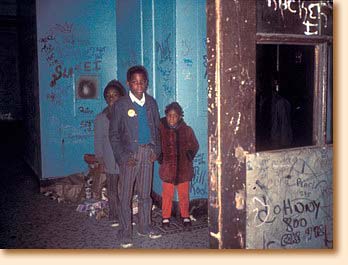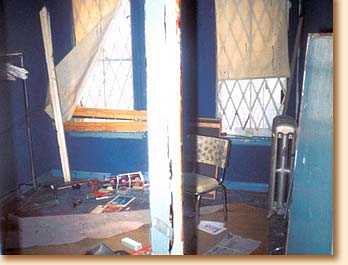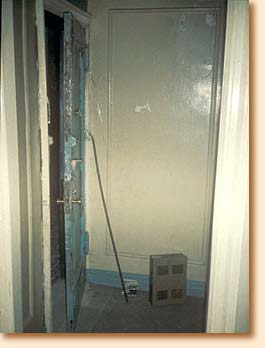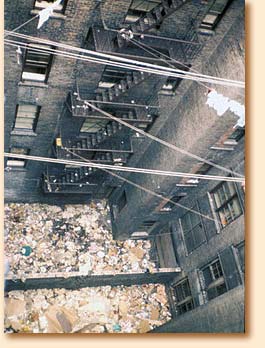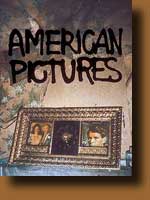
Book 15, pages 256-258
One day I saw in the New York times a picture of Mayor Lindsay presenting a
bouquet of flowers to a "heroic" police officer in a hospital bed. It said that
he had been shot down while "entering an apartment." I decided to find
out what was actually behind this incident and nosed around the Bronx for
several days to find the relatives and the apartment where it all took place.
Little by little I found out what had happened. James and Barbara were a young
black couple who lived in the worst neighborhood in the U.S.A. around Fox
Street in the South Bronx. One day they heard burglars on the roof and called
the police. Two plain-clothes officers arrived at the apartment and kicked in
the door without knocking. James thought it was the burglars who were breaking
in, and he shot at the door, but was then himself killed by the police. Barbara
ran screaming into the neighbor's apartment. When I went to the 41st Precinct
police station they confirmed the story and admitted that "there had been a
little mistake," but James of course "was asking for it, being in possession
of an unregistered gun."
I was by now so used to this kind of American logic that I did not feel any
particular indignation toward the officer. I just felt that he was wrong. Since
I had spent so much time finding out the facts of the case. I might as well go
to the funeral, too. I rushed around town trying to borrow a nice shirt and
arrived at the funeral home in the morning about an hour before the services. I
took some pictures of James in the coffin. He was very handsome. I admired the
fine job the undertaker had done with plastic to plug up the bullet holes.
Black undertakers are sheer artists in this field; even people who have had
their eyes torn out they can get to look perfectly normal. Since black bodies
arrive in all possible colors and conditions, they use almost the entire color
spectrum in plastic materials. James did not make any particular impression on
me; I had already seen so many young black corpses. The only thing I wondered
about was that there wasn't any floral wreath from the police. I waited about
an hour, which was to be the last normal hour that day. Not more than ten
people came to the funeral, all of them surprised at seeing a white man there.
A young guy whispered to me that he thought it was a little unbecoming for a
white man to he present at this particular funeral. Then suddenly I heard
terrible screams from the front hall and saw three men bringing Barbara in. Her
legs were dragging along the floor. She was incapable of walking. I could not
see her face, but she was a tall, beautiful, light-skinned young woman. Her screams made me shudder. Never before had I heard such
excruciating and pain-filled screams. When she reached the coffin, it became
unbearable. It was the first and only time in America I was unable to
photograph. I had taken pictures with tears running down my cheeks, but had
always kept myself at such a great distance from the suffering that I was able
to record it. When Barbara came up to the coffin, she threw herself down into
it. She lay on top of James and screamed so it cut through marrow and bone. I
could only make out the words, "James, wake up, wake up!" again and again. The
others tried to pull her away, but Barbara didn't notice anything but James. I
was at this point completely convinced that James would rise up in the coffin.
I have seen much suffering in America, but I have often perceived in the midst
of the suffering a certain hypocrisy or even shallowness, which enabled me to
distance myself from it. Barbara knocked my feet completely out from under me.
Everything began to spin before my eyes. It must have been at that point that I
suddenly rushed weeping out of' the funeral home. I ran for blocks just to get
away. My crying was completely uncontrollable. I staggered down through Simpson
and Prospect Streets, where nine out of ten die an unnatural death. Robbers and
the usual street criminals stood in the doorways, but I just staggered on
without noticing them, stumbling over garbage cans and broken bottles. It was a
wonder that no one mugged me, but they must have thought I had just been
mugged.
When I got to James' and Barbara's apartment building, still crying, I asked
some children if there was anyone up in the apartment "of the man who was shot
the other day." They asked if I didn't mean the man who was shot in the
building across the street last night. No, it was in this building, I said. But
they had not heard that anyone had been shot in their building. They lived on
the third floor and James and Barbara lived on the sixth floor. I went up to
the apartment, which now stood empty.
Robbers had already ransacked it, and
there were only bits of paper and small things scattered around on the floor.
The emptiness of the apartment made me sob even harder. There were bullet holes
all over in the living room wall where James had been sitting, but there were
only two in the door which the police had kicked open.
There were three locks
on the door like everywhere in New York, as well as a thick iron bar set fast
in the floor - a safety precaution the police themselves recommend that people use to avoid having their doors sprung open by criminals. James
and Barbara had been so scared of criminals that they had put double steel bars
on their windows although it was six stories up and there was no fire escape
outside. Down in the courtyard there was a three-foot pile of garbage people
had thrown out of their windows.
Here James and Barbara had lived since they
were sixteen with their now four-year-old daughter. After a couple of'
hours I
ventured out of the apartment. I had cried so much that I had a splitting
headache, and all the way into Manhattan the weeping kept coming back in waves.
When I came to a movie theater on the West Side, I wandered in without really
knowing what I was doing. It was at that time that movies directed by blacks
were being produced for the first time in history. The film was called
"Sounder" and was about a poor family in Louisiana in the 1930's. There was an
overwhelming sense of love and togetherness in the family, but in the end the
father was taken away by the white authorities and sent to a work camp for
having stolen a piece of meat. The film was made in Hollywood and romanticized
the poverty; after several years in a work camp, the father came back to the
family, so the film would have a happy ending.
This wasn't the kind of poverty I had met up with in the South. The only time I
cried in the movie was when I saw things that reminded me all too much of James
and Barbara. Afterward I wandered over in the direction of Broadway. An old
black woman whom I had stayed with in the North Bronx the night before had
given me ten dollars so I could get some nice clothes for the funeral. She had
at first not trusted me and had spent several hours calling various police
stations asking them what was the idea of sending an undercover cop to her
house. But when after half a day she had assured herself that I was not a
police agent, she was so happy that she gave me the ten dollars, and I had to
promise to come stay with her again, and she telephoned to Alaska so I could
talk with her daughter who lived up there. Now I still had a little money left
over and went in my strange state of mind straight into another movie theater
on Broadway and saw "Farewell, Uncle Tom." It was a harrowing film about
slavery. It was made by non-Americans (in Italy), so it didn't romanticize
slavery. You saw how the slaves were sold at auction, the instruments of torture that were used, and you saw
how men were sold away from their wives and children. It was frightful. How
could all this have been allowed to happen only a hundred years ago? At some
points in the film I almost threw up. I looked around the cinema repeatedly, as
I was afraid that there would be blacks in there, but there were only two
people in the whole theater besides me. When I got outside, there was a young
black guy hanging around with sunglasses on. I stood for a long time looking
him in the eyes, and I couldn't understand why he didn't knock me down.
For
days afterward I was a wreck. I will never forget that day. It stands
completely blank in my diary. A whole year went by before I pulled myself
together and sought Barbara out. But when I came to the kitchen at the
veterans' hospital where she worked, an old black woman was sent out to talk to
me. She told me that she was Barbara's guardian, since Barbara had not been
normal since the funeral. She had become very withdrawn and never spoke any
more. I asked her what Barbara had been like before James' death. She went into
deep thought for a moment and then told me with tears in her eyes about the
four years when James and Barbara had worked together there in the kitchen.
They had always been happy, singing, and a real joy to the kitchen personnel.
They had never missed a day of work, always came in together and always left
together at the end of the day. But she wouldn't let me see Barbara, for
Barbara did not wish to see anyone.
Another year went by before I sent a letter to Barbara from somewhere in the
South. I assumed that by now Barbara had gotten over her husband's murder. When
I again went to the kitchen, the same elderly woman met me. It was as if time
had not passed at all, and we just continued where we left off. She sighed
deeply and looked into my eyes. "Barbara has gone insane," she said.
Barbara kept coming up in my thoughts wherever I traveled. But another event
came to make just as strong an impression on me. Somewhere in Florida an
unhappy white woman had climbed up a water tower and stood on the edge, about
to commit suicide. But she couldn't make herself jump. It was in a ghetto area
and a large crowd of people, most of them black, gathered at the foot of the
tower. The police and fire department were trying to persuade the woman not to
jump, while the crowd shouted for her to jump. I was totally unable to
comprehend it. I shouted as loud as I could: "Stop it, stop it, please, let the
poor woman live." But their shouts grew louder. It was the worst and most
sickening mass hysteria I had ever experienced. Then suddenly it hit me that
the screams sounded like Barbara's on that unforgettable morning. I started
getting weak in the knees and rushed off, just as fast as at the funeral home.
In five years I will try to contact Barbara once more. I must see her face
again some day!
Summary of letters
Copyright © 2005 AMERICAN PICTURES; All rights reserved.
